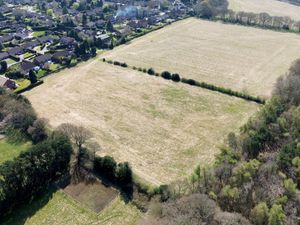Statue call ‘divisive and dangerous’, claims councillor
A Conservative councillor has spoken out against calls to take down statues and rename buildings with links to slavery and colonialism, calling the campaign "divisive and dangerous".

This week a campaign by the Birmingham Anti-Racist Campaign (BARC) made headlines after the group called for statues such as that of Lord Nelson to be removed from public view.
The campaign is also asking the council to change the names of buildings and squares in Birmingham with links to Britain’s colonial past, and has called for history in the city to be taught from an ‘anti-colonial’ perspective.
Speaking in response to the petition, Councillor Matt Bennett said that he does not feel the majority of people in Birmingham back the call, saying that the views and actions of some of the historical figures now being targeted are ‘peripheral’ in comparison to their achievements.
And he also feels there is an ulterior motive of division from those behind the petition.
“I think most people know that there were bad things about empire,” he said.
“But I think there’s a real danger in saying that a certain person who has contributed a great deal should now no longer be celebrated just because they held views on certain things that, in terms of what they achieved, is sort of peripheral.
“Slavery was tangled up with the economy of not just Britain, but other European empires and Africa, too – I mean it was African nations that sold slaves to Europeans wasn’t it?
“Birmingham people are proud of their history, and an attempt to undermine it based on a petition that less than 600 people have signed – most of whom I suspect are trying to force a particular political agenda, which is to wipe away our history and culture and tradition – I think is terribly dangerous.
“Our history is really important and we wipe it away at our peril.
“Ultimately the black and minority ethnic people who live in this country today are people who came over here largely because of an opportunity that was presented to them by their countries being historically part of the British empire. They were invited to come here to work and most of them would have come here to choose a better life.
“My wife’s from an ethnic minority background, I’ve got mixed-race children, so this is something that’s real to me, I’m not just talking theoretically. So they came over here for a better life and by and large they must have got a better life and their descendants are here now. If it wasn’t for the British empire, they wouldn’t be here.
“I don’t think the majority of people in Birmingham want to see Chamberlain Square renamed. I don’t think the majority of people would want to see statues brought down. But the sheer conviction of their own rightness of some of these people really seems to suggest that what they believe about it should be just accepted by everybody.
“I don’t mean all of them but there are certain groups who do this sort of thing, who do really want to divide us, to make black people resent white people, to make working class people resent middle class people, to feed on that resentment.
“That’s horrible. we shouldn’t permit that, we shouldn’t allow that to happen and we shouldn’t pander to it either by deciding to take down some statues that form an important part of our history. Because Birmingham will suffer as a result and Birmingham people will suffer as a result.
“I do understand the point that it may be different for people from an ethnic minority background, I do totally get that it’s easy for me as a white man to say that. But it doesn’t change the basic facts that we are where we are now in this situation.”
Referencing the current situation in Hong Kong, Councillor Bennett said that most Hong Kong nationals will currently be "grateful" that they were once a part of the British Empire, as it will now allow them access to British passports.
And he also believes that, as far as the teaching of history goes, that the current curriculum is already taught in a balanced way.
“I think history should be taught from a historical point of view and, frankly, I don’t think history is currently taught from a pro-colonial point of view,” he said.
“I don’t think having a sort of ‘anti-colonial’ point of view if you want to call it that, is a helpful way of putting it. I think just saying it should be taught from one point of view only is always dangerous.
“I’m in my 40s and when I was at school we weren’t taught that the British empire was totally wonderful and any criticism of it was wrong. Certainly my kids at school now aren’t taught that, and people I’ve spoken to who are much older than me weren’t taught that at school.
“Maybe there isn’t something fixed on the curriculum, but it’s always been a balanced picture of empire, and the British Empire wasn’t the only empire was it?
“It’s what’s always been taught, and I don’t really see what they’re asking for there that the vast majority of schools probably aren’t delivering in one way or another.”





